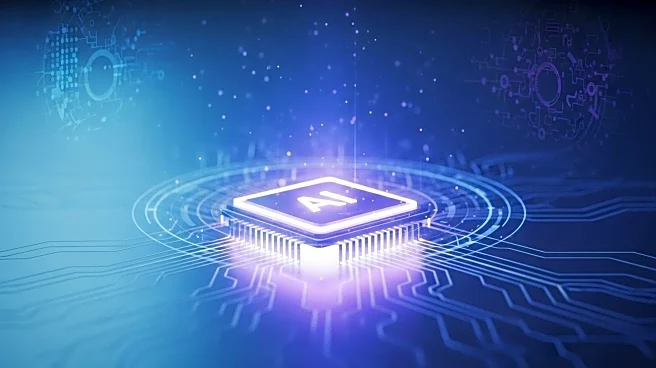What's Happening?
Tesla has announced a strategic shift in its AI hardware ambitions, moving away from the Dojo AI supercomputer project to focus on the development of AI5 and AI6 chips. The AI6 chip is described as the 'best AI chip to date,' while AI5 is designed to enhance Tesla's Full Self-Driving (FSD) and robotics capabilities. The decision to discontinue Dojo reflects a strategic reevaluation of Tesla's AI infrastructure, as the project faced technical, financial, and staffing challenges. The AI6 chip, developed in collaboration with Samsung, is intended to serve dual roles in both training and inference, streamlining Tesla's AI operations across autonomous vehicles, robotics, and data center applications.
Why It's Important?
Tesla's shift to AI6 aligns with broader industry trends favoring scalable, off-the-shelf solutions combined with custom silicon. This move enhances Tesla's flexibility and capacity for AI training and model development, particularly for FSD and Optimus, its humanoid robot. The pivot reflects a pragmatic approach to balancing innovation with practicality, especially given the complexities of developing and maintaining a custom supercomputer. The integration of AI6 into Tesla's infrastructure could potentially enhance the performance and scalability of its AI models, enabling faster iterations and broader deployment of autonomous features.
What's Next?
Tesla is investing $500 million into a new supercomputer in Buffalo, New York, leveraging AI6 and GPU-based compute power. The company aims to maintain its leadership in AI-driven innovation while addressing the logistical and economic realities of modern semiconductor development. Public and investor reactions to the Dojo shutdown have been mixed, with some viewing the decision as a necessary pivot from a high-risk, self-reliant hardware strategy to a more flexible model that integrates partnerships with leading chip manufacturers.









